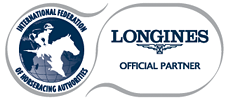The Executive Council of the International Federation of Horseracing Authorities (IFHA) has unanimously reaffirmed its commitment to a stringent anti-doping policy and has authorised the IFHA Chairman to directly engage with relevant racing jurisdictions to emphasise the importance of implementation of this policy.
“The Federation’s commitment to a stringent anti-doping policy has been a core principle since the IFHA’s inception. It is in our DNA,” said Louis Romanet, Chairman of the IFHA. “Doping undermines everything that we want to achieve relating to fair competition, integrity, the welfare of racehorses, the safety of jockeys and the development of strong bloodlines in the Thoroughbred breed.”
“In Article 6E of the IFHA International Agreement, we have articulated the substances which should not be administered to a racehorse at any time in its career and the out- of -competition testing requirements necessary to ensure fair competition, transparency welfare, safety and sound breeding. Looking around the world great progress has been made in implementing these requirements. And yet there are some countries in which more needs to be done.”
“I look forward to reaching out and discussing this matter with the applicable racing authorities to reinforce the importance of implementation of these elements of the International Agreement.”
The Executive Council specifically endorsed the Breeders’ Cup’s updated protocols put in place in advance of the 2017 Breeders’ Cup World Championships. Breeders’ Cup Limited is conducting out-of-competition testing of potential starters prior to the Breeders’ Cup World Championships, to be held November 3-4 at Del Mar Thoroughbred Club in Del Mar, California. These protocols are in alignment with the Article 6E restrictions on the use of anabolic steroids and other proscribed substances.
“I welcome the move by the Breeders’ Cup organisers to introduce protocols which conform to the Article 6E restrictions on the use of anabolic steroids and to conduct out-of-competition testing, and I will be encouraging the racing commissions in North America to follow this lead,” said Romanet.
It was also announced that horses which have been disqualified for violating the principles of Article 6E will henceforth be excluded from the Longines World’s Best Racehorse Rankings list.
Lastly, the IFHA Executive Council applauded the recent appointment of the 5 IFHA reference labs (Australia, Racing Analytical Services Limited; France, Laboratoire Des Courses Hippiques; Great Britain, LGC Group, Sport & Specialised Analytical Services; Hong Kong, Hong Kong Jockey Club Racing Laboratory; USA, Kenneth L. Maddy Equine Analytical Chemistry Laboratory, University of California at Davis).
“The central purpose of the IFHA Reference Laboratory programme is to foster an environment in which all races that are significant to the IFHA rankings of horses, races and jockeys are supported by analytical laboratories which the IFHA has reviewed and have been assessed by it to have certain characteristics considered important by the IFHA.”
Added Romanet, “There are a number of other existing laboratories in other jurisdictions that we know already have these characteristics and we will now work with them through the appointment process. It remains my objective to see all of the world’s most important and highest- rated races to be tested under the control of these approved reference laboratories, with Group 1 and Grade 1 races being the priority.”
Notes to Editors:
About the International Federation of Horseracing Authorities (IFHA):
The International Federation of Horseracing Authorities (IFHA) is the world peak body for the international sport of Thoroughbred racing. Its 60 members are the national racing authorities across the globe which stage Thoroughbred races.
Major areas of the IFHA’s activities include:
• Making and amending the International Agreement on Breeding, Racing and Wagering (the IABRW)
• Policy development relating to welfare and safety of horses and riders
• International Race Planning and Grading (“black type”)
• World Rankings
• Equine Prohibited Substances and Practices
• Harmonization of Race Day Rules
• Fostering commercial development of the racing industry globally
The IFHA is a foundation member with Fédération Equestre Internationale (FEI) of the International Horse Sports Confederation and is affiliated to the World Organisation for Animal Health (OIE).
About Article 6E of the International Agreement on Breeding, Racing & Wagering
The introduction to Article 6 of the IABRW sets out a statement of principles:
• Racehorses are prohibited from racing with any prohibited substance in their bodies.
• All therapies for horses involved in racing or race training (including rest periods) should be based upon a specific diagnosis, administered in the context of a valid and transparent owner-trainer-veterinarian relationship, and given in the interests of the horse's health and welfare.
• Following any therapy given to a racehorse, a sufficient period should elapse prior to racing such that the therapy (i) is not capable of giving the horse an advantage or causing it to be disadvantaged contrary to the horse's inherent merits or (ii) is detrimental to its welfare.
Article 6E sets out a class of substances which should not be administered to a racehorse at any time on its career. These include anabolic steroids and growth hormones. Article 6E also requires that racing authorities put in place arrangements to carry out testing for these prohibited substances at any time in the career of any horse, from the commencement of training, according to local racing rules, to final retirement from training.
About exclusion of horses from the Longines World’s Best Racehorse Rankings
The following policy will apply for races that take place in 2017 and beyond.
Any horse that has been disqualified by final action of a regulatory authority with jurisdiction over the conduct of racing where the violation occurred as a result of the detection of a prohibited substance covered by Article 6E of the International Agreement on Breeding, Racing and Wagering (IABRW) will be excluded from the Rankings for the corresponding calendar year in which the violation is determined to have occurred. An exception can be made if the trainer has been determined to have discharged his responsibilities in specific cases (i.e. contamination).
About the IFHA Reference Laboratories
The IFHA has published a White Manual which sets out the process for appointment as an IFHA Reference’s laboratory .the necessary characteristics for appointment include but are not limited to the scale of operations, resourcing (floor space, equipment, staffing, funding), research activity and capability to detect the use of prohibited substances including in particular the MDA. It should be noted that it is not intended that all racing analytical laboratories would become IFHA Reference Laboratories, and the fact that a racing analytical laboratory has not been appointed as an IFHA Reference Laboratory is in no way a reflection on the general competency of that organisation.
|



